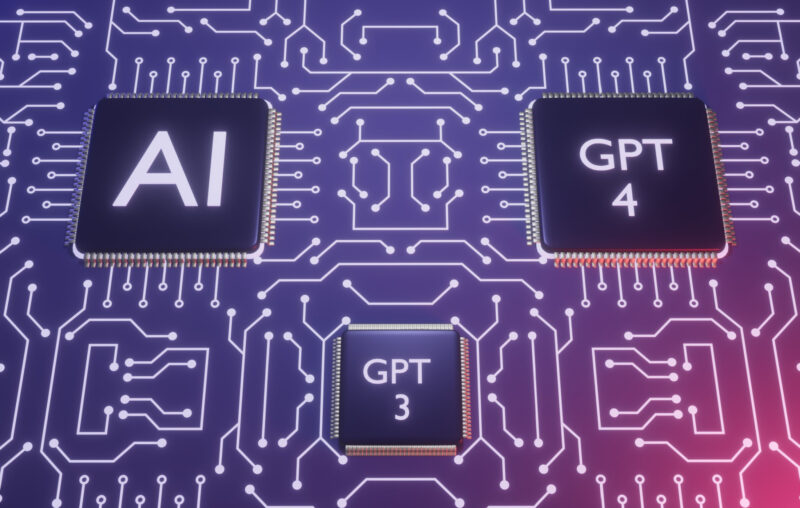
In late November of final 12 months, ChatGPT shook the world right into a frenzy over the way forward for synthetic intelligence. ChatGPT is among the many household of generative AI fashions that course of huge troves of present knowledge and spit out coherent strings of written, verbal, and visible content material. You’ll be able to, for instance, view a picture of a Tyrannosaurus Rex shot on a Canon 300mm f/2.8 lens inside seconds by typing within the related command. These generative AI fashions are revolutionizing industries starting from healthcare to schooling to finance to the leisure trade.
With such fast growth of AI come rising fears that it will likely be utilized in dangerous methods. Lina Khan, chief of the Federal Commerce Fee argues in a New York Instances op-ed that generative AI must be strictly regulated to keep away from client harms and anti-competitive practices. “Alongside instruments that create deep pretend movies and voice clones,” she writes, “these applied sciences can be utilized to facilitate fraud and extortion on an enormous scale.”
Imposing blanket laws on generative AI fashions, nevertheless, will considerably disrupt innovation and delay the life-changing advantages that include it. Even when governments had the correct regulatory instruments of their pockets, the tempo at which AI applied sciences are advancing will show intractable, rendering any type of stringent regulation ineffective.
As a substitute of this method, we must always go for “softer” laws resembling trade finest practices and casual negotiations amongst stakeholders that encourage the formation of bottom-up governance. This manner, innovation can proceed apace whereas decentralized types of governance can emerge to deal with the potential harms related to generative AI methods.
Along with the considerations raised by Khan, many additionally consider that this new era of AI will enhance on-line sexual exploitation, harassment, and disinformation. To handle these points, corporations like OpenAI and Google are enlisting and coaching human reviewers to take away malicious and inaccurate content material. In some instances, OpenAI units limits on person habits by means of their Phrases of Service contracts. These examples signify a rising effort amongst AI corporations to include bottom-up governance that doesn’t require heavy-handed regulation.
In collaboration with trade leaders and different priceless stakeholders, the Nationwide Institute of Requirements and Expertise (NIST) created a framework for decreasing adverse biases in AI methods, which “is meant to allow the event and use of AI in methods that may enhance trustworthiness, advance usefulness, and deal with potential harms.”
The Institute of Electrical and Electronics Engineers (IEEE), an expert affiliation with greater than 420,000 members in 160 nations, revealed a report outlining trade requirements that “guarantee each stakeholder concerned within the design and growth of autonomous and intelligence methods is educated, skilled, and empowered to prioritize moral issues in order that these applied sciences are superior for the advantage of humanity.”
By consulting with quite a few stakeholders, the NIST and IEEE are creating decentralized frameworks which can be informing the AI group as to finest practices and establishing a set of requirements that may mitigate issues earlier than they come up.
In fact, no panacea exists that may remove the uncertainty swirling round generative AI. However fostering spontaneous governing establishments will empower improvements that may enhance every thing from advertising and marketing and customer support to artwork and music leisure. One advertising and marketing agency just lately predicted that 30 % of selling content material might be AI generated by 2025. Much more gorgeous, they count on that AI will contribute 90 % of textual content and video era for a significant Hollywood movie by 2030.
By growing productiveness, furthermore, generative AI is increasing the know-how frontier. Researchers from MIT, for instance, are exploring methods wherein generative AI can “speed up the event of latest medication and scale back the probability of antagonistic negative effects.” Firms are additionally utilizing AI to generate pc code that may enhance software program growth and improve person experiences.
In stark distinction to the bottom-up governing buildings rising, the European Parliament is contemplating a proposal generally known as the AI Act that may impose burdensome laws on AI corporations throughout the European Union. Some stakeholders, such because the Way forward for Life Institute, argue that generative AI should bear “conformity assessments,” that are strict necessities that AI corporations want to meet earlier than their applied sciences are launched to the general public. The identical Institute additionally revealed an open letter with greater than 27,000 signatures, together with Elon Musk, calling for AI labs to droop growth for a minimum of six months till “a set of shared security protocols” have been totally carried out.
As calls develop louder to manage AI in Europe, the White Home launched its AI Invoice of Rights, outlining what the Biden administration believes to be its prime priorities “for constructing and deploying automated methods which can be aligned with democratic values and shield civil rights, civil liberties, and privateness.”
Sadly, these proposals neglect the bottom-up governance methods which have developed within the absence of inflexible authorities oversight. It’s true that there are severe dangers in an unbounded world the place AI can be utilized to trace hundreds of thousands of individuals by means of facial recognition, unfold disinformation, and rip-off households by emulating a relative’s voice. However as Adam Thierer writes in his e-book, Evasive Entrepreneurship, the “softer” method embraces an perspective of permissionless innovation that creates a extra productive atmosphere wherein we are able to resolve advanced issues with out jeopardizing the inducement to innovate and uncover new methods of doing issues.
With AI creating at such a fast clip, it’s simple to let our fears of it overwhelm us. In any case, our perspective towards new know-how is what in the end shapes the regulatory panorama we undertake. Somewhat than letting such fears flood our senses, we must always stay cautiously optimistic in regards to the unbelievable prospects that generative AI fashions have unlocked. Embracing a bottom-up method of governance, although not good, is one of the best technique to make sure that the advantages of AI develop into a actuality with out endangering the essential values we cherish.


